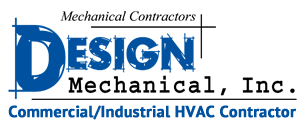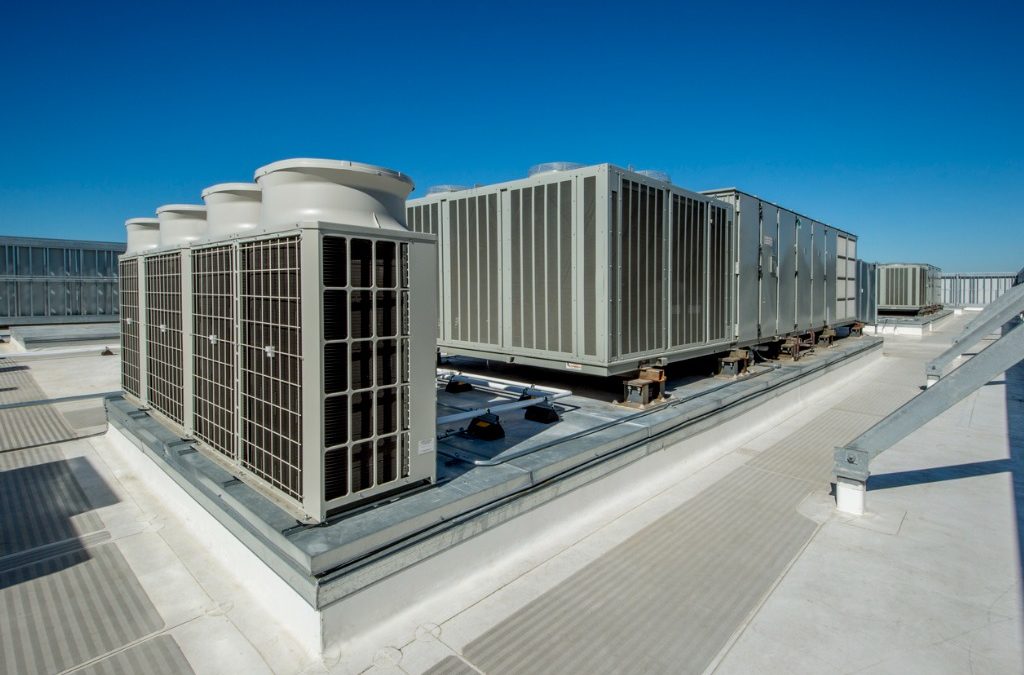One of the most important systems to any commercial building is the HVAC system. The HVAC not only regulates the comfort level of the building in both summer and winter by controlling the temperature, but it also contributes to the quality of the air and to your bottom line.
When it’s time to replace the HVAC, one of the biggest concerns is the cost. There’s no easy way to estimate how much it will cost to replace an HVAC system. Understanding which factors contribute to the cost of a commercial HVAC system can help you select the best system for your building.
The Size of Your Building
The size of your commercial building dictates what size HVAC you need. The amount of heat or cooling required is measured in British thermal units (BTUs). The rule of thumb for commercial buildings is 50 BTUs per square foot.
Sizing isn’t a perfect science because it can also be adjusted based on the construction of the building, ceiling heights, and window types. An older building without good insulation may require more BTUs than a newer building with double-paned windows. Buying a unit that fits your building gives you the best efficiency over the long term use of the HVAC system.
The Type of HVAC Unit Your Building Uses
There are several types of commercial HVAC systems. If you have a small commercial building with just a few rooms to cool, you may need a single or multi-split constant air volume system which is very similar to a residential unit. The outdoor compressor pushes air through the indoor blower system based on the thermostat setting.
Variable air volume HVACs are much more efficient because they push air through the system based on the current temperature. They are more expensive but provide more comfort for the occupants. Another system type called variable refrigerant volume uses piping to circulate coolant through the building which then heats or cools individual rooms as needed.
Installation Costs Can Vary
Installing an HVAC system in a commercial building comes with different challenges. You may need special permits for installation. If you have a historical building, you may be constrained by size or other regulations. If your current system is on the rooftop, a crane will be required, which will increase costs.
Depending on the age of your system, you may even need updated wiring or electrical work for the new unit. Ask the contractor whether these things will be added as a line item or if it’s included in the labor and installation costs.
Type of Activity in the Building
While building size is a key factor in determining HVAC size, how the building is used should be another consideration. A restaurant with multiple appliances that raise the heat levels has a much different need than a warehouse.
A warehouse may not need as much heating and cooling as an office building that has a large number of workers who will raise the temperature in the room. Rooms with a lot of technology may need to be kept cooler, which increases the need for a better SEER rating and possibly increases the required BTUs.
Additional Considerations
Commercial units are often used much more than residential units, usually at higher temperatures. This places more stress on the system, making it work harder. The ancillary elements of the system may need to be replaced more often.
In older buildings, when a newer HVAC is installed, it can be valuable to check the ductwork to make sure it contains the air effectively. If you want to automate your HVAC system when you replace it, there may be controls that need to be updated, increasing your installation costs but reducing your long-term utility costs.
Benefits of a New Commercial HVAC System
When you’re looking at a new HVAC system, the sticker shock can be overwhelming. Investing in a new system makes sense once your current system is over 10 years old and starting to break down more than it’s in use. There are quite a few benefits that can help you offset the costs of a new system.
- Better efficiency can reduce your monthly utility costs of heating and cooling a large building.
- Newer HVAC units can help your building qualify for Energy Star ratings or other energy-efficient regulations.
- There may be tax credits or rebates you can apply for.
- Air quality is generally improved when HVAC systems are replaced, which can be a marketing point for the building to get new tenants.
- Newer HVAC systems have less maintenance needs when first installed. These systems also have new technologies that automate maintenance and provide detailed information about the system to make early repairs.
- Newer HVAC systems can also run quieter, placing less stress on the health of workers in the building.
The financial benefits of a new HVAC system can definitely help offset the installation costs. The energy savings and operational expense savings can help make choosing the right HVAC system a little less overwhelming.
Working with a professional contractor who understands commercial HVAC systems and who can customize your system can help you pay for the right features that give you the highest efficiency while offering the improvements you need to keep employees healthy.
Design Mechanical can help you find the right commercial HVAC system that fits your building’s needs and your budget. Customizing a commercial HVAC unit can help you get the product that offers the most efficiency. Contact us to get more information!

